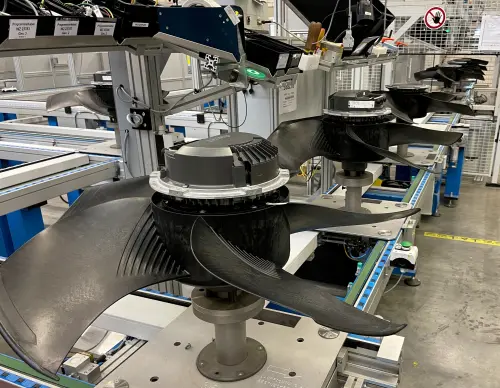Euro zone industrial production contracted more than anticipated in December, indicating that the sector's two-year recession persists, despite some signs of stabilization in sentiment and orders. According to Eurostat data released on Thursday, output in the 19 Eurozone countries decreased by 1.1% in December from the previous month, falling below the projected 0.6% decline. Notably, Germany saw a 2.9% decline, while Italy experienced a 3.1% decrease.
Factors such as high energy costs, reduced demand from China, increased global competition, and outdated models in the automotive sector have continued to hinder European industry. Year-on-year comparisons showed a 2.0% overall decline, with a significant 8.0% drop in capital goods production.
Despite some indicators suggesting stabilization, concerns remain due to recent developments in the United States and challenges in the aluminum market, in addition to the looming threat of additional trade barriers. Economists also worry about the potential adverse impact of tariffs on Chinese goods on the European market, as they may displace locally manufactured goods.
In December, capital goods output decreased by 2.6% compared to the previous month, while intermediate goods fell by 1.9%, partially offset by a notable rise in consumer goods production. The stagnation in Euro zone growth over the past year can be attributed to consumers holding onto their disposable income, influenced by uncertainties surrounding the industrial sector, a significant employer in the region.
